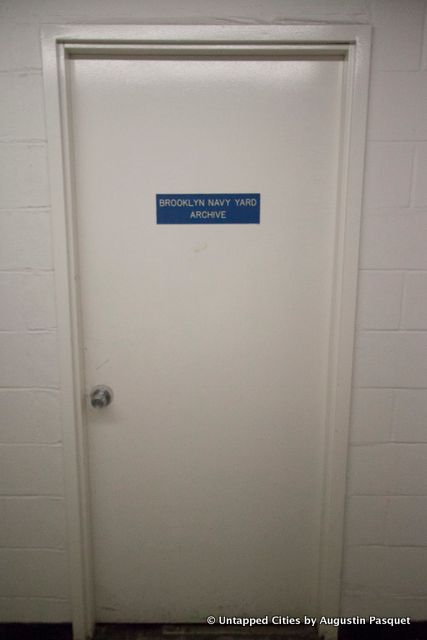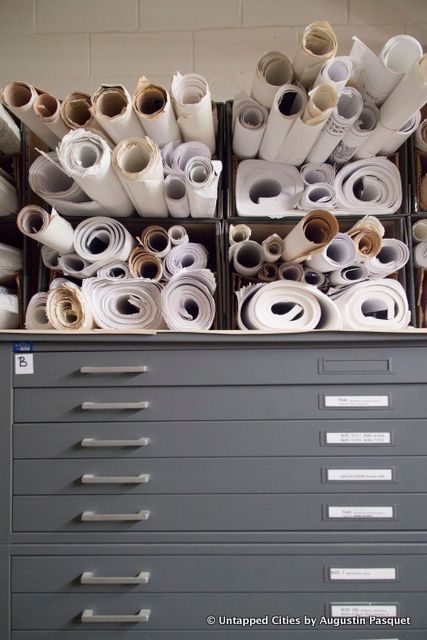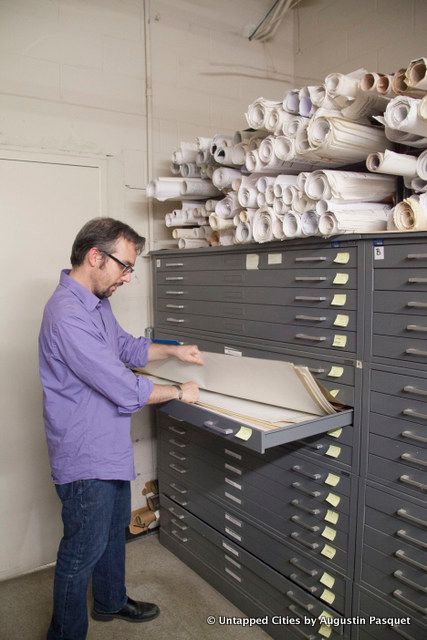

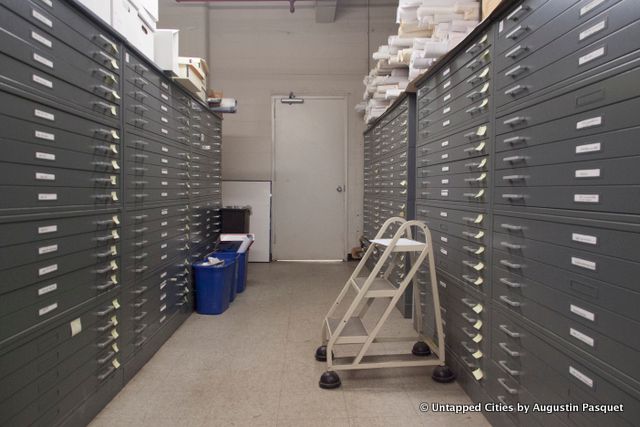
This week, we got a special tour inside the archives of the Brooklyn Navy Yard by Dennis Riley, the archivist. A visit through any archive brings to light the historical context in which an institution was formed, but the Brooklyn Navy Yard archive is particularly unique, because much of the content was simply left behind by the U.S. Navy when the yard changed ownership to the Brooklyn Navy Yard Development Corporation. Riley, who has been with the Navy Yard for a little over a year, has really continued the effort of previous archivists and bring to light some of the amazing artifacts in side. “This is the stuff that makes the link,” between past and present, Riley tells us. Here’s a recap, with photos, of some of the most unique pieces we saw. You can check out an official exhibit in BLDG92
1. Floor Plans for the Admiral Row Mansions
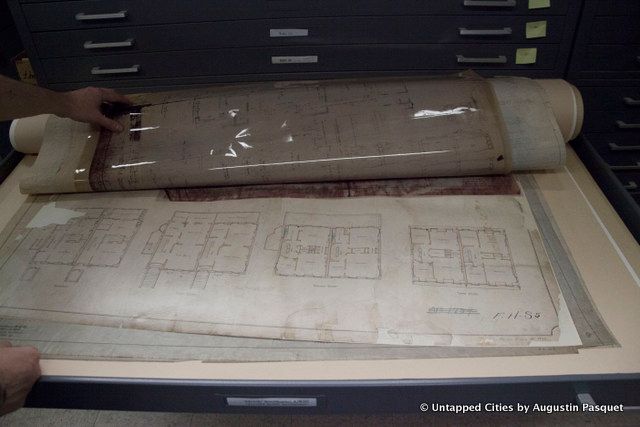
The crumbling Admiral Row mansions are awaiting demolition, except for two that will be salvaged but there are the original floor plans for the townhouses which reveals buildings of generous proportions: front and back parlors, parlor extension and a library just on the first floor.
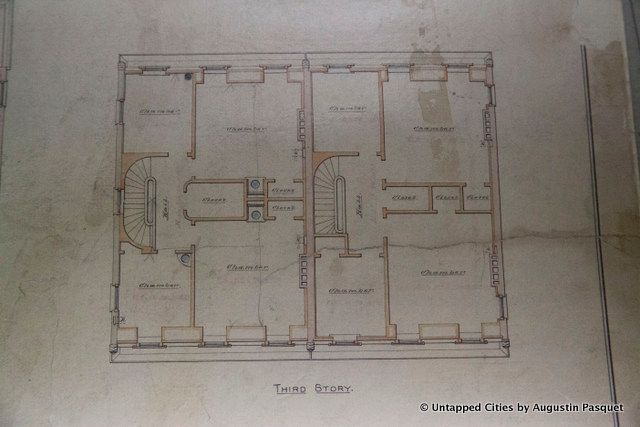
2. Admiral Row House Wallpaper
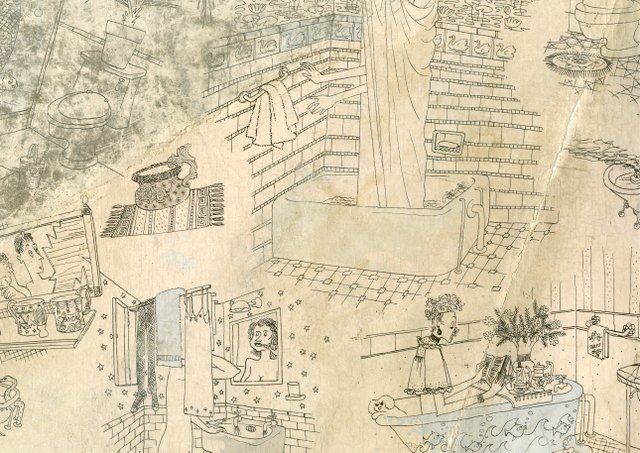
Photo from Navy Yard Archives, courtesy Dennis Riley
From Quarters D on Admiral Row, the whimsical wallpaper from inside the townhouse.
3. Miniature Canons
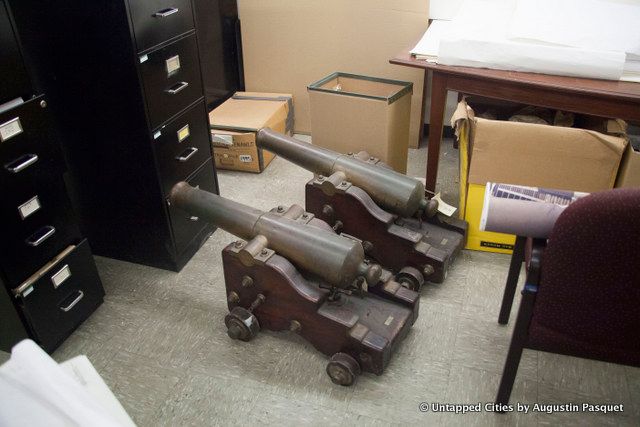
These miniature canons were loaned to the archives from the Navy History & Heritage Command via the Museum of City of New York. Other canons have been recovered from the yard, while still others serve as bollards, flipped upside down and buried in the ground.
4. Original Signage for the Brooklyn Navy Yard
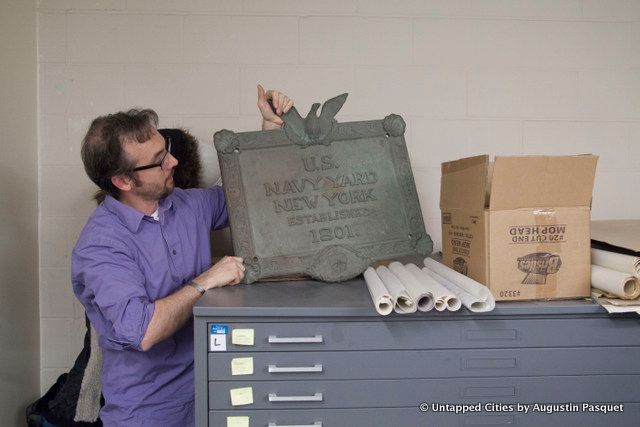
When the Navy left the yard, it took the heavy signage that once fronted the entrances. The navy has leant four back to the archives.
5. ~40,000 Records
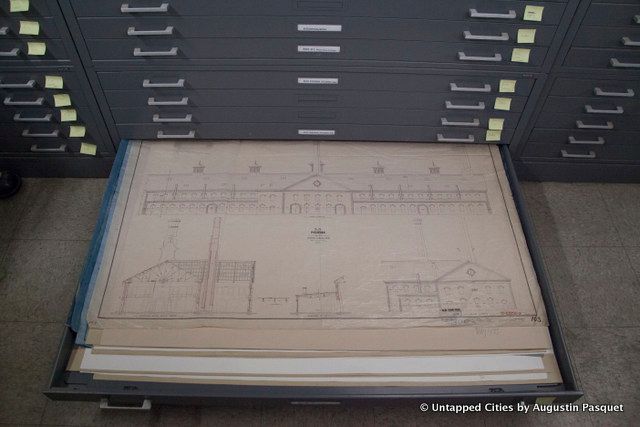
There are 40,000 records in the archives, which includes records management for the corporation, along with drawings for the Navy Yard. The above is the drawing for the foundry of the Navy Yard, a building that is no longer standing.
6. Personal Collections of Navy Yard Workers and Navy Seamen
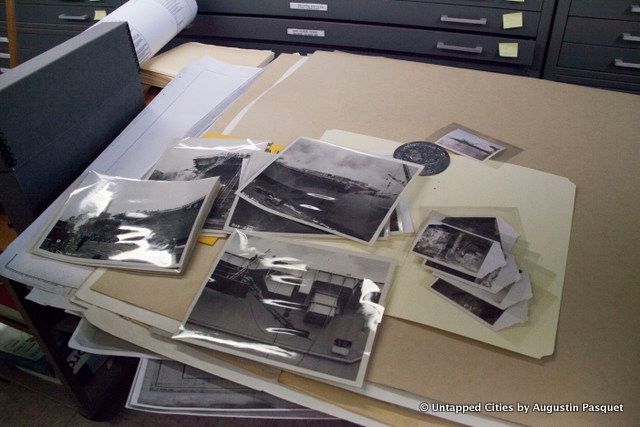
Riley sees his role as also the keeper of donations from the personal collections of Navy Yard workers and Navy staff, and he says the fact that families entrust the archives to manage such keepsakes is “humbling.” Above are photographs from the fire of the USS Constellation in which 49 people lost their lives.
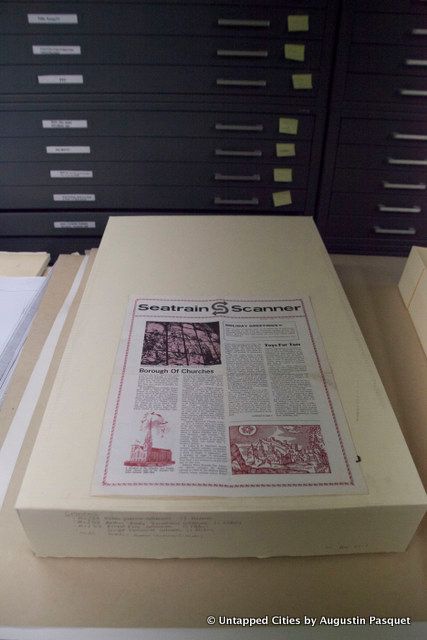
Above is part of a collection of documents and memorabilia from the Seatrain Shipbuilding days, a venture to build crude carriers that ceased operations at the navy yard in 1979.
Application papers for a skilled worker named Abraham Friedman, whose family donated his collection:
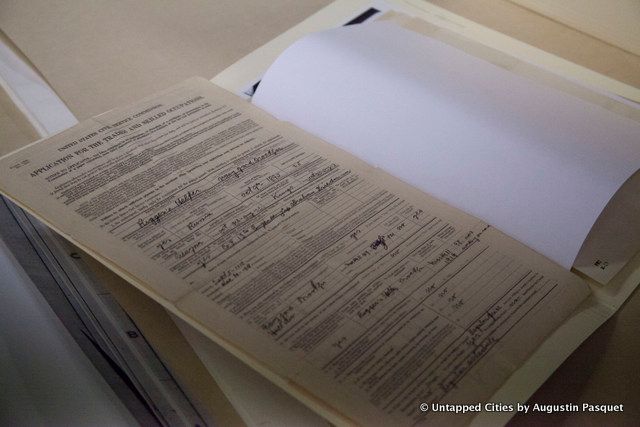
Friedman’s identification cards:
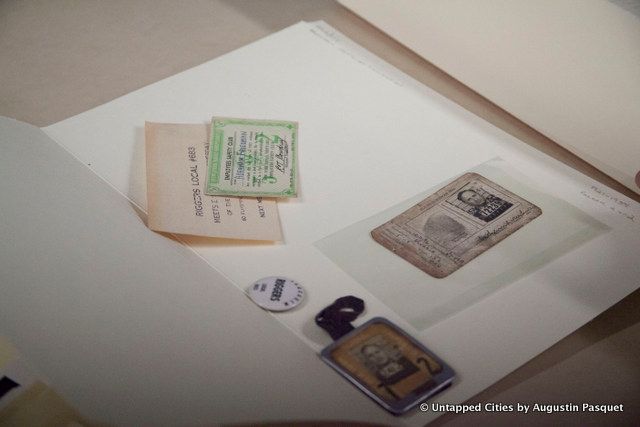
This document shows that Friedman worked for some time at the Maspeth extension of the Brooklyn Navy Yard, a confirmation Riley found of various annexes he had heard of during the peak of activity.
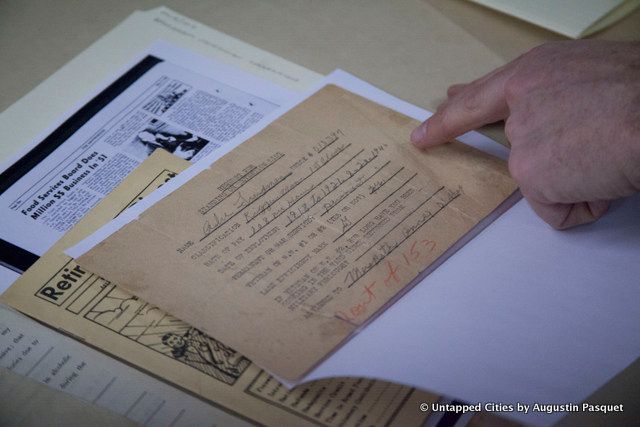
7. Plans for a Dog Kennel
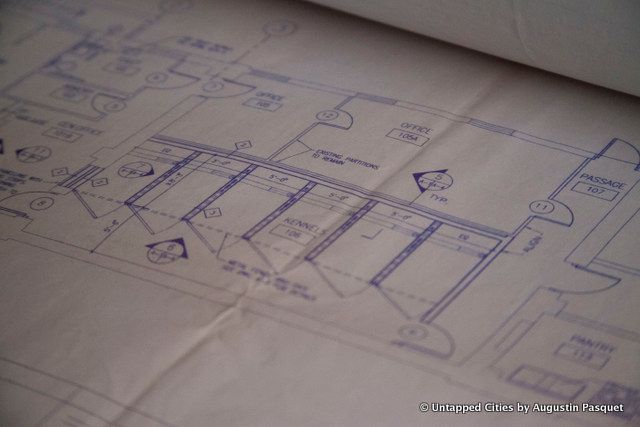
The Navy kept dogs as part of the operation and these plans show the kennels built for them.
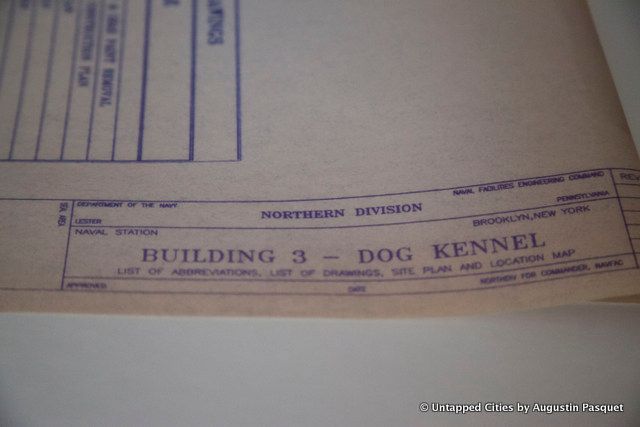
8. Helmets, Guns and Artillery
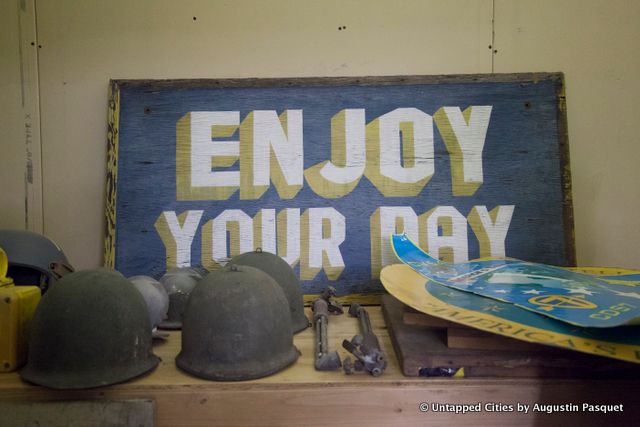
Soon, the archivists will be going through a collection of artifacts and tagging them, which include signage, helmets, vintage guns, artillery, old flags and more.
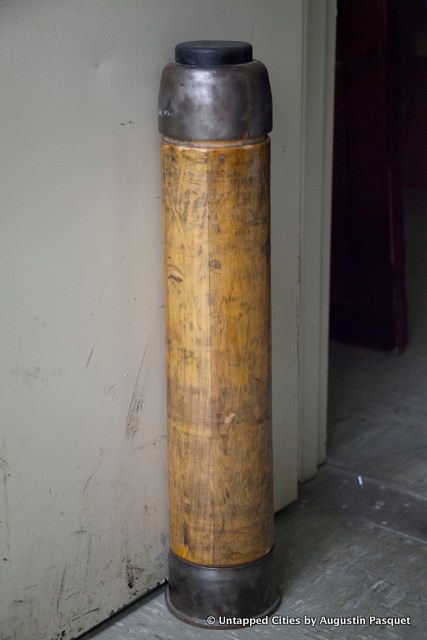
A piece of practice artillery
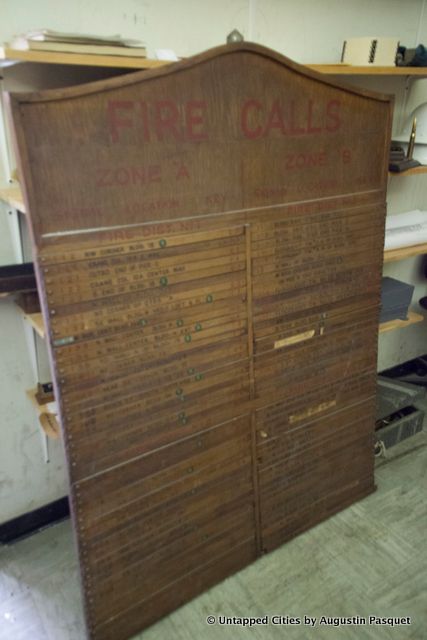
9. Remnants of the USS Ohio
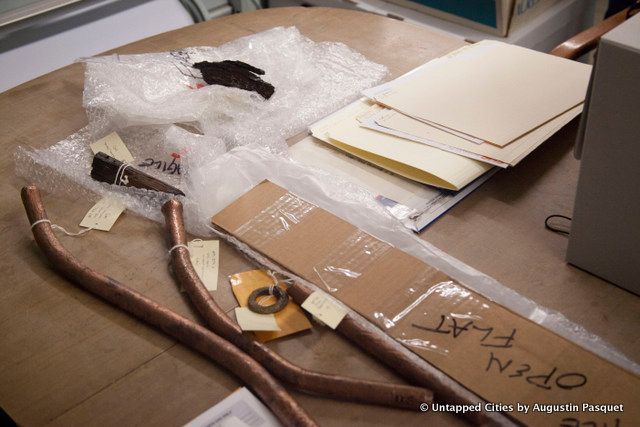
The USS Ohio was the first ship built at the Brooklyn Navy Yard. It was destroyed in a deliberate controlled fire off the cost of Long Island. A package of remnants retrieved the Long Island Sound has just been delivered to the archives.
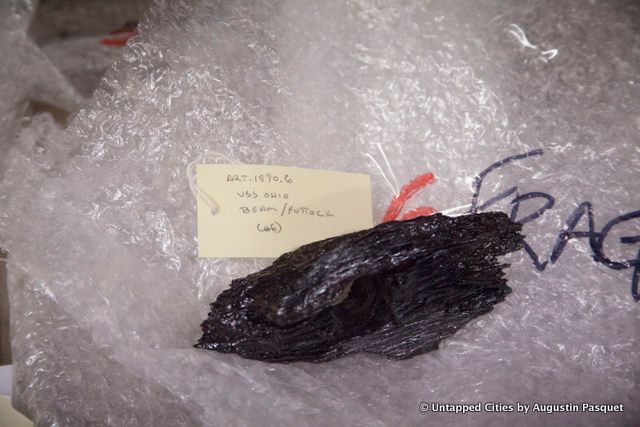
10. Radio Tower Plans
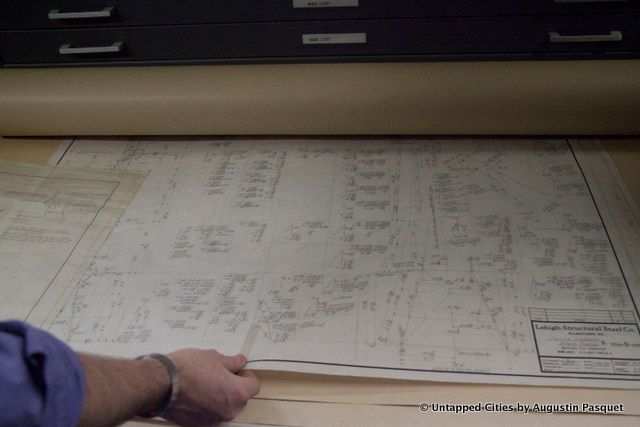
Last week we got to the bottom of those mysterious WWII radio towers atop a building in the Brooklyn Navy Yard. Here are the original plans (full of math) for the towers.
11. Internal Desk Plans
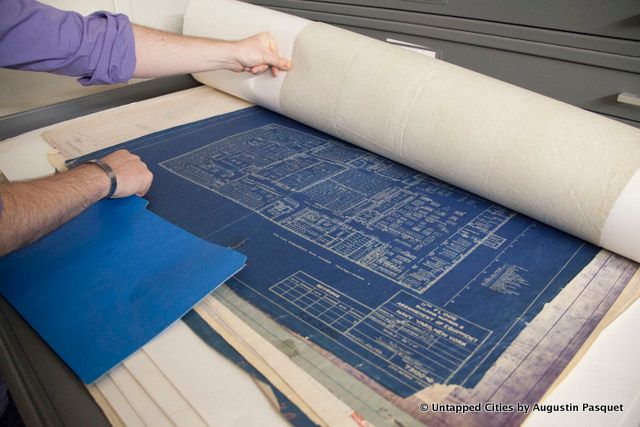
This detailed plan shows the layout of desks and offices inside Building 3, determining where workers like planners, estimators, drafters, clerks, stenographers, and more would sit. Fun notes on here: the officers used a different bathroom than everyone else, and there is a note for where the pneumatic tubes were in the mailroom.
12. Old Aerial Maps
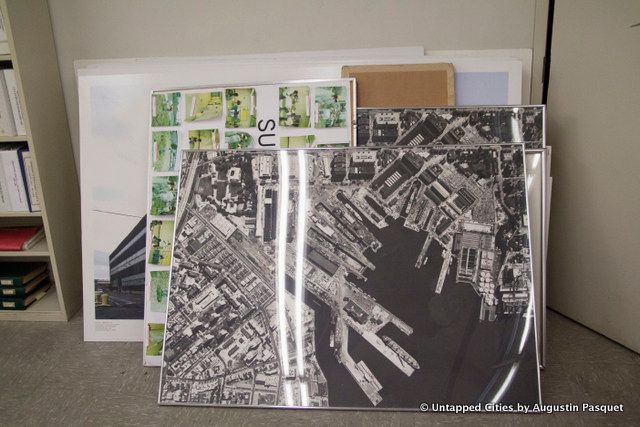
Here are some additional photographs of the archive:
